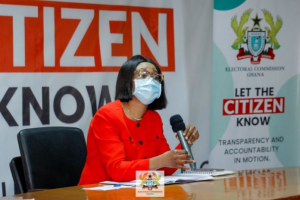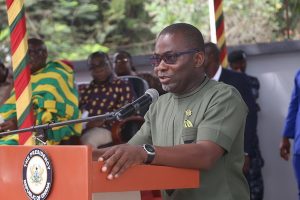The founder and former Executive Director of the Media Foundation for West Africa, Prof. Kwame Karikari, wants media stakeholders including owners and journalists to consider a push for the reform of sections of the criminal code that appears to be the basis of many recent arrests of journalists in the country.
According to him, there is a false assumption that the repeal of the criminal libel law is absolute and so enough to protect the work of journalists.
The police have largely relied on Section 207 and Section 208 of Ghana’s criminal code to arrest especially journalists in recent times.
Speaking on Citi TV’s Point of View, the former Director of the School of Communication Studies at the University of Ghana said, there are many aspects of the criminal code that empowers the police to take action against journalists in their line of work that must be looked at.
“The problem that I find is that when we got those [criminal libel] laws repealed , it seems the community of media practitioners and owners went to sleep thinking that everything is well. I hope the owners of media and the Ghana Journalists Association will be interested in a conversation to reform this law. I think this law can be refined in such details that journalists making certain speech will not be arbitrarily treated,” he remarked.
He told the host Bernard Avle that while the police and the existing laws are clear on the alleged issue of publication of false news for instance, there is the need for some reforms to protect the right and the work of journalists.
Within three weeks, four journalists and activists have been arrested by the police often for allegations they made on radio or on social media which according to the police are investigated by them and found to be false.
The arrested persons include; Accra FM’s Bobie Ansah, Power FM’s Oheneba Boamah Bennie, and the Executive Director of the Alliance For Social Equity and Public Accountability (ASEPA), Mensah Thompson who were all slapped with the charge of publication of false news and offensive conduct.
But according to Prof. Karikari, media stakeholders need to consider the option of self-regulation to guard against police arrests such as what has been done recently.
He further criticized the quality of journalism in the country, saying that there has been a lot of “recklessness in the media, the unprofessionalism, and abuses of freedoms. We are aware of them and we do not condone them, and that also needs to be addressed.”
He also urged the government and its assigns to hasten slowly in frequently engaging the police to arrest journalists for comments the complainants believe impugn their reputation.
“When that kind of thing happens, it is a sure way of minimizing the image of the executive. When the police are seen to be arresting people, it becomes very negative for the image of the executive. They should minimize using the police to police speech. That readily makes people accuse the president as the one ordering the police to do these things,” he advised.







